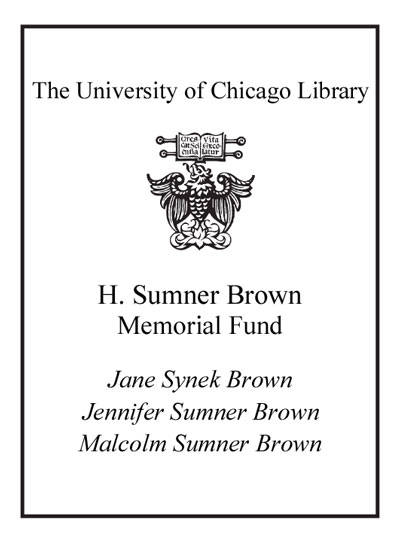Review by Booklist Review
Set in 1980s Los Angeles, Fitch's follow-up to the Oprah selection White Oleander (1999) opens with Josie Tyrell receiving a devastating call informing her that the body of her boyfriend, Michael Faraday, has been found in a hotel room. Josie can't understand why Michael would take his own life; in her eyes, their relationship had been perfect. Michael's wealthy mother, Meredith, a concert pianist, believes the blame for her son's death rests on his lower-class, art-model girlfriend. She chases Josie from the funeral, then seeks her out days later, helplessly drawn to the last person her son was close to. Josie resents Meredith's disdain, but is similarly curious about the woman who raised Michael. An unlikely pair, Josie and Meredith circle each other warily until Meredith decides to remake Josie in her image, possibly at the expense of Josie's identity. Layered and piercing, Fitch's second outing explores the many levels of grief and sets up an unexpected recovery in a tale certain to please Fitch's countless fans. --Kristine Huntley Copyright 2006 Booklist
From Booklist, Copyright (c) American Library Association. Used with permission.
Review by Publisher's Weekly Review
Fitch follows her bestselling debut, White Oleander, by revisiting the insidious effects of a powerful, narcissistic mother on an only child. Michael Faraday is a Harvard dropout who paints in the L.A. art world of 1981; his suicide happens a few pages in, and sets the stage for a Fitch's masterful shifts in time and perspective. Josie Tyrell, an artist's model and denizen of the punk rock, had an intense relationship with Michael, but never managed to free him from his mother, renowned concert pianist Meredith Loewy, who moves in a bleak, loveless world of wealth and privilege. Yet their very different loves for Michael bring about a surprising alliance between the imperious Meredith and Josie, a white trash escapee whose inborn grace, style and sense of self sustain her-along with art, music and alcohol. The two find unexpected comfort in each other's shared loss, allowing Fitch to contrast the inner and outer resources of women whose lives couldn't be more different, and to flash back deeply into their histories. Fitch excels at painting a negative personality with sure-handed depth and fairness, and her prose penetrates the inner lives of the two with immediacy and bite. In Josie, she has created an indomitable young woman whose pluck and growing self-awareness beautifully offset Meredith's emptiness. Their relationship transforms a big cliche-the artist's suicide-into a page-turning psychodrama. (Sept.) (c) Copyright PWxyz, LLC. All rights reserved
(c) Copyright PWxyz, LLC. All rights reserved
Review by Library Journal Review
Disavowing her sad-sack family, Josie ends up in Los Angeles-and in love with brilliant Michael, whose suicide leads Josie to out-and-out battle with his formidable mom. (c) Copyright 2010. Library Journals LLC, a wholly owned subsidiary of Media Source, Inc. No redistribution permitted.
(c) Copyright Library Journals LLC, a wholly owned subsidiary of Media Source, Inc. No redistribution permitted.
Review by Kirkus Book Review
Bereavement, alienation and survivor's anger are the legacy bequeathed to the stunned protagonist of Californian Fitch's somber second novel. Josie Tyrell is a 20-year-old artist's model, sometime-actress and substance-abuser whose already chaotic life in L.A.'s underground artistic environs is further unsettled when she's notified that her boyfriend, Michael Faraday, has killed himself in a rundown motel. As she did in her Oprah-selected White Oleander (1999), Fitch structures this as a contest between two determined women: embittered Josie (who's intent on learning why her rapturous life with Michael, a struggling artist, wasn't enough for him), and Michael's mother, Meredith Loewy, a celebrated concert pianist and smothering matriarch whose attitude toward Josie vacillates between homicidal resentment and almost sisterly empathy. This backward-and-forward momentum at least varies Fitch's numbing concentration on Josie's emotional outrage, as does a subplot involving an independent movie in production (whose cluelessly smug director envisions it as "Bergman meets Hitchcock in Antonioni's unmade bed"), a preening sex machine who calls himself Nick Nitro and a handsome young actor who worms his way into Josie's bed without ever eliciting a response from her. But the changing relationship of Meredith and Josie is central, and the story almost catches fire as Fitch peels away successive layers of pretense to reveal each woman's hidden story (Meredith's history of losing other loved ones before Michael, Josie's uncomfortable memories of her white-trash family and sexually threatening older brother). Yet it wallows in self-pity and indignation, even in the climactic pages, where Josie believes she knows Meredith's real secret, returns to that motel and acknowledges the truth about Michael, which she has unsuccessfully repressed: "He loved me, but he hated himself more." Vivid writing here and there, but Josie is a dull character, and the story is a real downer. Copyright ©Kirkus Reviews, used with permission.
Copyright (c) Kirkus Reviews, used with permission.
Review by Booklist Review
Review by Publisher's Weekly Review
Review by Library Journal Review
Review by Kirkus Book Review

